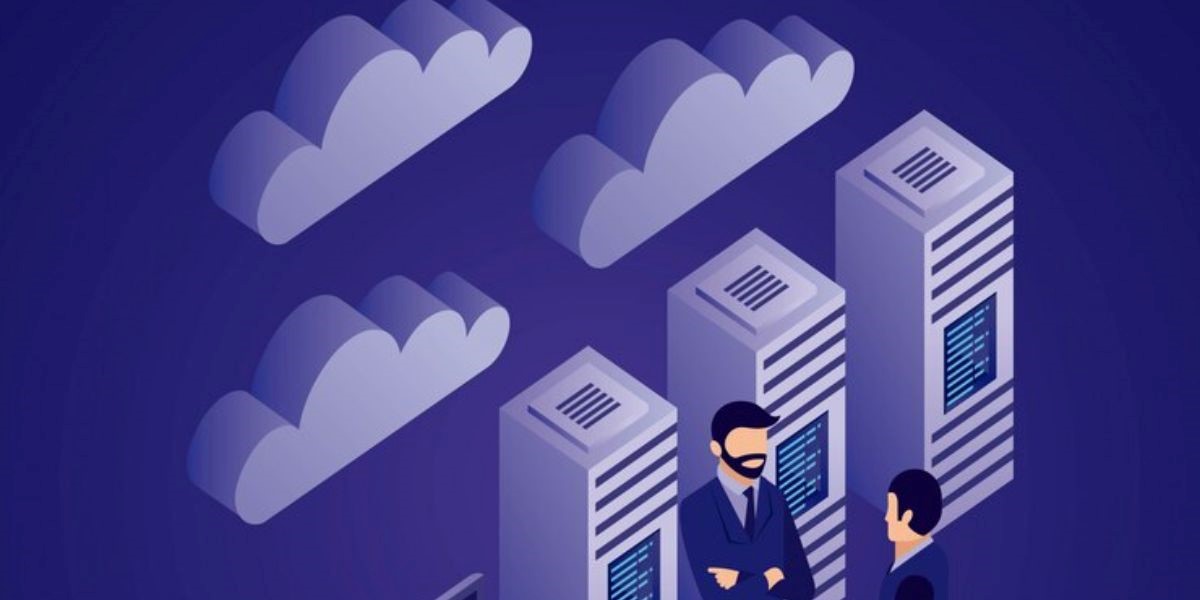
In today’s digital-first landscape, your choice of hosting can make or break your online operations. Whether you’re a tech startup, a law firm, or a global e-commerce brand, one question keeps popping up: Is cloud hosting better than a private server?
The answer isn’t a simple yes or no. It all comes down to your business model, security needs, growth expectations, and technical expertise.
Let’s dive in and explore both hosting options in depth to help you make an informed decision in 2025. So, then you will know the answer to the question “which is better: cloud or private server?”
A cloud server doesn’t live in a single physical location. Instead, it’s a virtual server that pulls resources from a vast network of physical servers located around the globe.
Key benefits of cloud hosting include:
Cloud servers are ideal for businesses that prioritize flexibility, rapid growth, or don’t want to be burdened with hardware maintenance. But is cloud always better? Not necessarily.
A private server, often referred to as a dedicated server, is a physical server that is exclusively yours. You can either own it outright or lease it from a provider like OffshoreServers.NET, which specializes in secure, high-performance dedicated servers.
Advantages of private servers include:
While private servers offer power and exclusivity, they also require more technical expertise and come with higher upfront costs.

Cloud Hosting: Lower upfront costs. You pay only for what you use, billed hourly or monthly. However, if your traffic spikes or usage grows over time, costs can become unpredictable.
Private Server: Higher initial investment but predictable fixed monthly or annual costs. You’re not surprised by sudden usage-based fees.
Cloud Hosting: Virtually unlimited scalability. Add resources with just a click. Perfect for fast-growing apps or businesses that experience fluctuating traffic.
Private Server: Scaling is manual. You need to install new hardware or migrate systems to a more powerful machine.
Summary:
Private Server: Best-in-class security. You control everything: firewalls, encryption, and access. No sharing with other users. Ideal for businesses dealing with sensitive or regulated data.
Cloud Hosting: Good security, but you’re trusting a third party. You may share infrastructure with others, depending on the provider.
Providers like OffshoreServers.NET offer DDoS-protected dedicated servers, combining privacy, security, and performance.
Private Server: Delivers consistently high performance. No “noisy neighbors” to compete with for resources.
Cloud Server: Performance can fluctuate based on other users in the shared environment, although high-end clouds use containers or isolated VMs to reduce this.
Summary:
Cloud Hosting: Usually includes automated backups and quick disaster recovery tools. Restore your data with a few clicks.
Private Server: You are responsible unless your hosting provider offers managed services or backup tools.
Summary:
Cloud hosting is best for agile, fast-moving companies that prioritize convenience and quick deployment.
Private servers are favored by banks, law firms, healthcare providers, and other entities needing robust security.
A growing SaaS company expects unpredictable traffic as it launches a new platform. The team needs rapid deployment and global reach.
Best fit: Cloud hosting
Why?
A mid-size law firm manages confidential legal documents and must comply with data protection regulations.
Best fit: Private server
Why?

Some businesses and individuals value privacy beyond just server infrastructure. Here are examples of who benefits from secure and anonymous hosting:
Hosting with providers like OffshoreServers.NET ensures these users enjoy top-tier security, offshore data protection, and peace of mind.
You don’t always have to choose. Many modern businesses use hybrid hosting, which combines the cloud’s flexibility with the control of private servers.
Providers like OffshoreServers.NET specialize in designing hybrid solutions tailored to your goals.
Answering these helps eliminate poor fits and narrow your hosting options effectively.
Offshore hosting refers to placing your servers in another country, usually one with strong privacy laws and fewer regulatory constraints.
Benefits include:
OffshoreServers.NET offers optimized offshore hosting in multiple international locations, making it ideal for businesses needing global reach and resilience.
DDoS (Distributed Denial-of-Service) attacks are increasingly common. If you’re running a high-traffic website, e-commerce store, or media platform, you’re a target.
Cloud providers often offer generic protection, but DDoS-protected private servers are built to deflect attacks and maintain uptime.
OffshoreServers.NET specializes in dedicated servers with DDoS mitigation, ensuring:
Think of it as a digital bodyguard for your business.
If you’re looking for a hosting provider that values privacy, performance, and reliability, OffshoreServers.NET is your go-to partner.
Whether you’re a fast-growing startup or a privacy-first enterprise, our team is ready to support your hosting journey.
A VPS (Virtual Private Server) is a single physical server split into isolated virtual environments. You get dedicated resources, but it’s still one machine. Cloud hosting, on the other hand, uses a network of servers to host your data, offering better scalability, uptime, and redundancy.
Yes, offshore hosting is legal as long as it’s not used for illegal activities. Many businesses choose offshore servers for added privacy, data sovereignty, or to comply with regional regulations outside their home country. Always check the laws in both your jurisdiction and the offshore location.
Absolutely. Most hosting providers, including OffshoreServers.NET, support migration from cloud to private servers as your business grows or your data needs become more complex. A hybrid solution can also ease the transition.
A DDoS-protected server is equipped with tools and infrastructure to detect and mitigate Distributed Denial of Service (DDoS) attacks. This helps keep your website or application online, even during large-scale malicious traffic floods.
Both cloud and private servers have their place in 2025:
Ultimately, the best option is the one aligned with your business goals, data sensitivity, compliance obligations, and budget.
Visit OffshoreServers.NET and explore our full range of offshore server hosting solutions. From scalable cloud environments to bulletproof dedicated servers, we have everything your digital project needs to succeed.
Remember: Hosting isn’t just technical, it’s strategic. Choose wisely.
We Accept Bitcoin, Litecoin, Dash, PayPal & Perfect Money